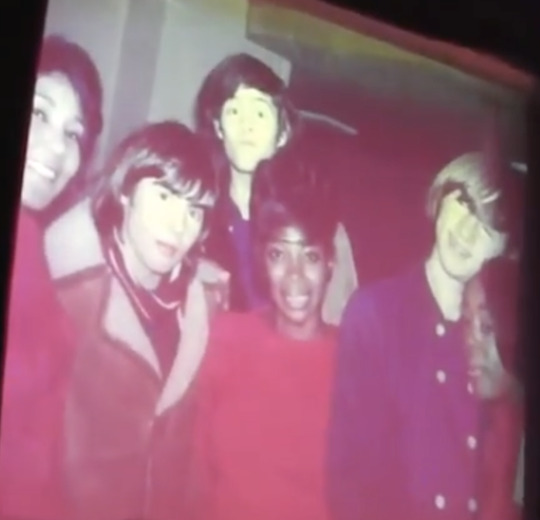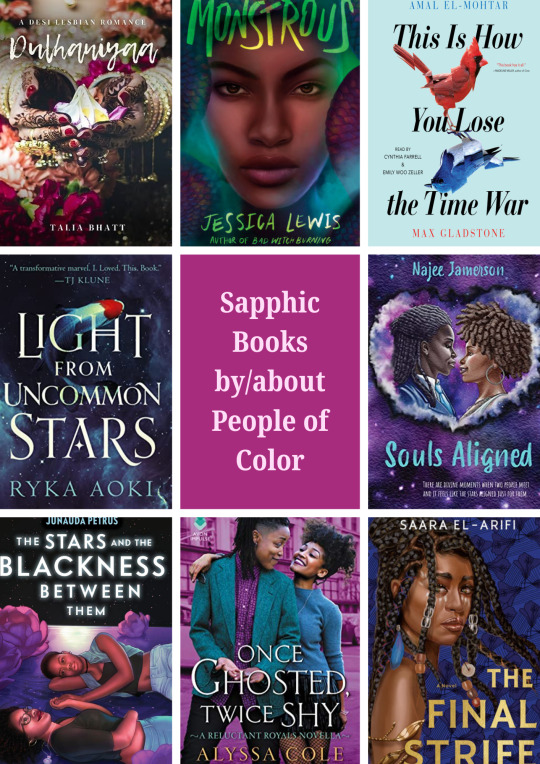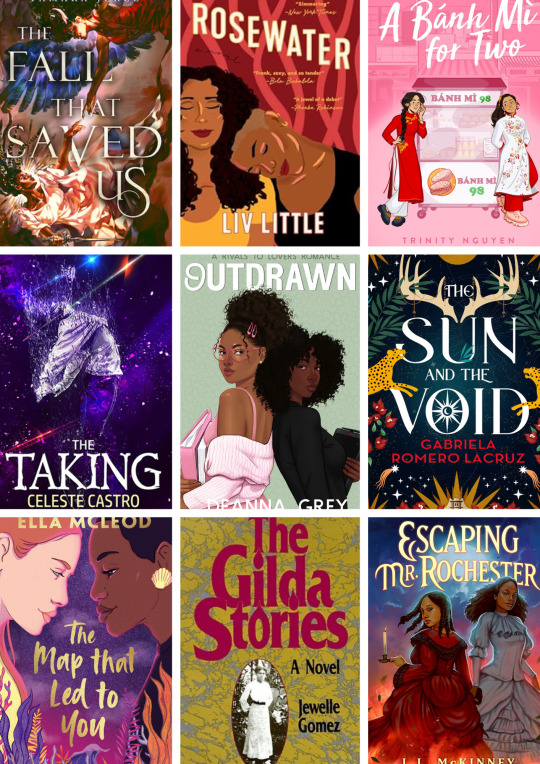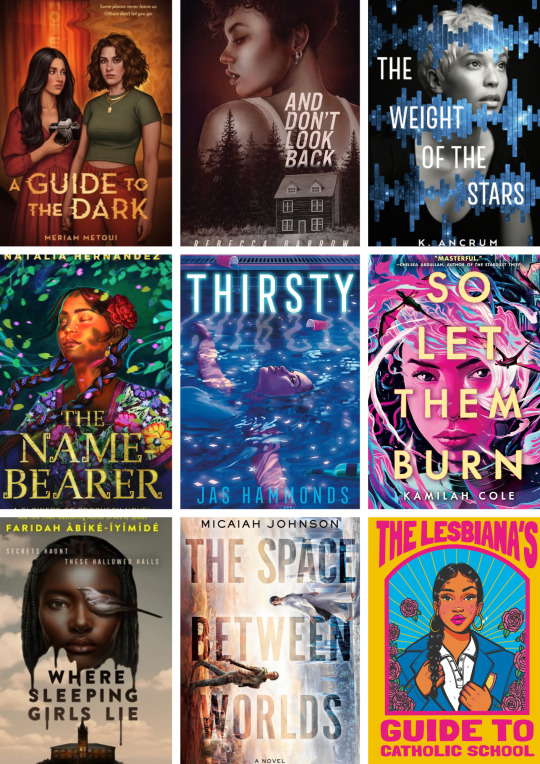#Ella Jamerson
Explore tagged Tumblr posts
Text

With The Apollas (Leola Jiles, Ella Jamerson, and Billie Barnum) during the December 1966/January 1967 tour. The trio opened for The Monkees.
"[In 1965] I accompanied this black trio called the [Apollas], on the stand-up string bass.” - Peter Tork, Goldmine, May 1982 “I managed to pull together a job playing double bass for a while for a black female vocal trio called the Apollas. I got to repay the favor later on.” - Peter Tork, Monkeemania (1986) "So I played blues guitar for a girl named Lynne Hughes, and I played stand-up bass for a Supremes-type, three-girl singing group [The Apollas], who wound up opening for the Monkees." - Peter Tork, The Monkees: The Day-By-Day Story "We had done a club in Huntington Beach. Peter Tork was the dishwasher there and he played guitar for us when we were there. [...] [When The Monkees were set to tour] Peter and Mike said, 'Well, let's get the Apollas, they're great.'" - Leola Jiles, The Monkees: The Day-By-Day Story “At the Losers North, the Apollas were backed by Mike Nesmith on guitar and Peter Tork on bass […]. The Apollas toured with the Monkees, and the two groups worked together extremely well as a team.” - My Soul Concerto: The Story of the Apollas by Opal Louis Nations, 2005 “Throughout the performance of the Monkees, they [The Apollas] stood on the sidelines in costume, grinning enthusiastic approval. All three were ‘overjoyed at being on this show.’ […] ‘Peter used to play the guitar for us,’ [Leola Jiles] said. ‘Mike knew us, too.’ […] Peter and Mike remembered the girls and recommended that they be placed on the show. […] ‘We are having a wonderful time,’ Miss Jiles chimed, as she joined the crowd in giving the Monkees a tremendous hand after another selection. Her fellow singers grinned and applauded too. ‘The fellows are great,’ they said. ‘They are wonderful as people as well as entertainers.’ […] Peter [also] played the banjo and did some folk singing when he performed with the Apollas. ‘He’s still the same old Peter,’ Miss Jiles volunteered.” - Winston Salem Journal, January 15, 1967 “Peter, who has since become a member of a certain rock and roll group going under the title of the Monkees, happened to be playing guitar in a nightclub at Huntington Beach when the Apollas appeared there. According to Leola, Peter as well as the rest of the Monkees are really nice people, and a lasting friendship has resulted between the members of the two groups.” - Contra Costa Times, July 23, 1967 Another opening act, for The Monkees' 1967 summer tour, was also suggested by Peter: Lynne Randell. Some TV footage of The Apollas.
#Peter Tork#The Apollas#The Monkees#Tork quotes#60s Tork#80s Tork#Davy Jones#Micky Dolenz#Michael Nesmith#Leola Jiles#Ella Jamerson#Billie Barnum#screenshots#(been typing up a lot of clippings and research so apologies in advance for any typos)#can you queue it
39 notes
·
View notes
Text



Sapphic Book Recs by/about People of Color, Part 1
These are some of the books I've read/are on my tbr. A mix of YA and Adult, across various genres.
Image 1:
Dulhaniyaa - Talia Bhatt
Monstrous - Jessica Lewis
This is how you lose the time war - Amal El-Mohtar and Max Gladstone
Light from Uncommon Stars - Ryka Aoki
Souls Aligned - Najee Jamerson
The Stars and the Blackness Between Them - Junauda Petrus
Once Ghosted, Twice Shy - Alyssa Cole
The Final Strife - Saara El-Arifi
Image 2:
The Fall that Saved Us - Tamara Jerée
Rosewater - Liv Little
A Báhn Mì for Two - Trinity Nguyen
The Taking - Celeste Castro
Outdrawn- Deanna Grey
The Sun and the Void - Gabriela Romero Lacruz
The Map That Led to You - Ella McLeod
The Gilda Stories - Jewelle Gomez
Escaping Mr. Rochester - L.L. McKinney
Image 3:
A Guide to the Dark - Meriam Metoui
And Don't Look Back - Rebecca Barrow
The Weight of the Stars - K. Ancrum
The Name-Bearer - Natalia Hernandez
Thirsty - Jas Hammonds
So Let Them Burn - Kamilah Cole
Where Sleeping Girls Lie - Faridah Àbíké-Íyímídé
The Space Between Worlds - Micaiah Johnson
The Lesbiana's Guide to Catholic School - Sonora Reyes
51 notes
·
View notes
Text
youtube
Abdul "Duke" Fakir RIP, el último "four top".
Cuando fue lanzada en 1966 "Reach Out I´ll Be There" de Holland, Dozier and Holland al principio hubo gente que la consideró incomprensible, un verdadero barullo en su estructura. Era un tema que se salía de los patrones rítmicos de la factoría Motown. Incluso los mismos Four Tops la vieron difícil y rara como ella sola.
Lamont Dozier dijo que quería escribir, agárrense porque esto es buenísimo: "un viaje de emociones con tensión sostenida, como un bolero. Para transmitir esto, alterné las tonalidades, desde un toque ruso menor en las estrofas hasta un toque gospel mayor en el estribillo". Es lo que tiene ser un genio del pop, el "Bach negro", que te suelta una de estas y a ver que haces, donde te metes...
En cuanto a la letra que escribió con Eddie Holland, ambos tuvieron el objetivo de que los Four Tops sonaran "como si estuvieran siendo derribados vocalmente". Ambos estaban por entonces muy influenciados por Bob Dylan y querían que "Levi Stubbs gritara y cantara la letra… como un saludo a Dylan". Puedo verlo, lo veo todo.
Para la grabación, los escritores y productores pusieron intencionadamente al cantante principal, el gran Levi, al límite de sus posibilidades, en el tope de los tops, en la cima de su rango vocal. Según Abdul Fakir: "para asegurarse de que tuviera ese llanto, hambre y gemido en la voz", cosa que logró maravillosamente.
Una vez completada la grabación -mención especial para el bajo de James Jamerson- y al escuchar la versión final, el grupo le rogó a Berry Gordy que no la publicara.
Según Fakir, "para nosotros la canción era una canción un poco extraña". Sin embargo, Gordy se dio cuenta de que aquello era una p... obra maestra y una de las cosas más desquiciadamente creativas que había hecho Motown hasta la fecha, e insistió en sacarla como sencillo. El resultado fue UK nº 1; USA nº 1; España, jiji, nº 1. Así fue...
Arriba en riguroso directo en París 1967. Buen detalle las 2 baterías + percusión.
0 notes
Text
Name Ideas ; List One (A-J + Double First Names)
FIRST, A Note: I’ve realized that these names can also help with writing; example, you’re making character (or in my case, using character from a fandom but need to name their kid), but don’t have a name? Here’s some help!
In short, the name ideas are going to be reposted on either my main or fic-rec blogs...or both. Not that it has anything to do with posting name help...
NEXT, A Guide: So these are male, female, gender neutral, basically just names. I’ve included “multi-first names”, example; in one of my fics, I named a child “William Claud / Will Claud”. Boom, double first namer.
Okay, uh, To the names I guess?!

Two first names, not alphabetized ;
Jonathan James (JJ)
Jamie Daniel (JD)
Devon Jack (DJ)
Spencer Lane
old name choice of mine, I’m excited but tbh it has nothing to do with your choice... continue 😅
Tyla Jane (TJ)
Tyler/Taylor Jayden (TJ)
Kaleb Dexter (KD)
Jacob Thomas (JT)
Kieran Drew (KD)
Parker Gray
Oliver Jay (O-Jay/OJ...lol)
Alex Emerson
Jack William (Jack Will)
Spencer Thomas
Tommi/Tommy Joel
Avery Jones (AJ)
Bree Anne/Ann
Or / Really any two names you think sound good together. AND while I added things like “AJ” and “JT” at the end for abbreviations or whatever, the nickname / shortened name doesn’t have to be two letters. Example, Spencer Lane and Jack Will!
Single First-Names
A:
Avery / Avary / Avry
Alexander/Alexandria
Ashton
Asher
Axel / Axl
Atticus
Allie / Alli / Ally
Amy
Ava
Athalia / Athelia / Aethalia / Athaliah
Aaron / Aron (or, previously -in my other list- Arin)
Adamaris
AJ
Adam
Ann / Anne
Alvin
Avon
B:
Beck
Becah / Beckah / Bekah
Becky
Beverly
Bree / Brea
Bianca
Bryan
Brayden
Bryn
Birdie / Birdy
Ben
Benjamin
Bryce
Bryson
Bowe
Bowie
C:
Calix
Cay
Cayson
Cam
Cami
Cameron
Cora / Coran
Cassidy
Cassandra
Cleo
Calli
Coraline / Caroline
Catie / Cady ...
Caidence / Caydence
D:
Danny / Danni
Daniel
Danielle
Darin / Daren
Dally
Dolly
Dexter
Deacon
Dee
Diane
Dori / Dory
Dorian
Daya
Delanie
Deb
Debby / Debbie
Debora / Debra / Deborah
Dia
Dwayne
Dwight
Dune
Dorthy / Dorthey
E:
Emmy
Emma
Everette
Evan
Eddie / Eddy
Ed
Edward
Ellie
Everly
Eve
Eva
Elle / El
Ella
F:
Farkus / Farkes / Farkas
either take me seriously, or don’t
I meant it as a joke, but who knows*
Faith
Florence
Fredrick
Fred
Freddy / Freddie
Fern gully
Freya / Fraya (?)
Faya
Farkle*
Fi
Fiona
Fibi / Febe
Forest
G:
Grayson / Greyson
Gibi
Gia
Gen
Gibson
Gibby
Greg
George
Georgie
Gem
Glimmer
Gemma
Genna
Grace
Gracie
Gwen
H:
Helen
Helena
Harry
Henry
Henrietta
Hally
Holly
Hazel
Harriet
Hope
I:
Ian
Ilia
Iliana / Iliana
Italia
Ira
Ila
Ita
Iwan
J:
Jamie
Jones
Jonesie
Jack
Jackson
John
Johnathan / Jonathan
Jill
Jessabelle / Jezabelle
Joseph
Jordan
Jaiden / Jayden
Julia
Jules
Jade
Jimmy
Jim
Jamerson
Jane
Jayson / Jason
Joy
Joyce
Jennie / Jenny
Jen
Jennifer
Julian
Jemma
#names#name change#name ideas#name inspiration#nonbinary names#trans names#trans name#nonbinary name#deadname#dead name#lgbt ideas#lgbtq+ ideas#name change ideas#names for nonbinary#names for trans#mtf#ftm#gender netural names#gender fluid names#gender queer names#character names#character name ideas#character ideas#character design ideas#character's name ideas#fanfiction#fanfiction name ideas#ideas for names#ideas for character names#ideas for name changes
58 notes
·
View notes
Text
The Invisible Hands That Changed Pop Music Forever

A painting is a collaboration of three things: the canvas, the creators, and the acrylics. If the music industry is a painting, then Black musicians are all three. In honor of Black History Month, we are exploring the legacy of black ingenuity through the decades, highlighting four music pioneers: Mahalia Jackson, The Funk Brothers, Gamble and Huff, and Frankie Knuckles.
Everyone knows or has at least heard of The Beatles. By sewing in elements of rock and roll into their own brand of pop, the Liverpool quartet helped bridge the gap between ‘50s clean cut, highly manufactured pop and what we know as pop music, today. The band pioneered the British Invasion and its widespread dissemination, forever changing pop music. But there was another group with an equally massive impact on the music we listen to today, except, chances are, you've probably never heard of them.
Alongside the British Invasion was another mass musical movement that would forever impact the future of pop and the music industry: Motown. The movement was sparked by Berry Gordy Jr. who, with the encouragement of Smokey Robinson, created Motown Records—the label that crafted adored artists like Marvin Gaye and The Temptations. While these musicians were extremely talented, the music they performed would not have existed without a group of adept virtuosos known as The Funk Brothers.
youtube
These 13 session musicians are collectively responsible for pioneering the sonic revolution of Motown. They played on more number one hits than The Beatles, Elvis Presley, The Rolling Stones and The Beach Boys, combined. They blended gospel, soul, and jazz with swing and pop to create catchy hooks and musical pockets that would forever change pop and eventually influence hip-hop and contemporary R&B.
1959 in Detroit is where it all began. By that point, the city had long been a musical epicenter, especially for jazz and blues, drawing in multiple talents throughout the 1930s and 40s, from Duke Ellington to Ella Fitzgerald. Upon creating Motown, Gordy recruited many of The Funk Brothers from different music clubs throughout Detroit.
Because they long remained in the shadows, it is important to acknowledge each of the Funk Brothers. These 13 pioneers are made up of Benny Benjamin (drums), Eddie “Bongo” Brown (bongos), Joe Hunter, (keys and first band director), James Jamerson (bass), Uriel Jones (Drums), Joe Messina (guitar), Earl Van Dyke (keys), Robert White (guitar), Eddie Willis (guitar), Richard “Pistol” Allen (drums), Jack Ashford, (percussion), Bob Babbitt (bass after Jamerson), and Johnny Griffith (keys).
These brothers were bound not by blood but by soul. And that is evident in the records they crafted together, fusing latin and afro-rhythmic beats with jazz and R&B to invent new, rich grooves with a punching yet melodic bass line, a four-beat drum pattern and clever drum fills that, alone, brilliantly set the scene. By 1972, Motown had released over 100 No. 1 R&B singles and 50 No. 1 Pop songs in the U.S, each of which involved some combination of The 13 Funk Brothers. As guitarist Joe Messina puts it, “I think the magic was, we listened to each other and we liked each other.”
Though there were R&B pioneers throughout 1940s and 50s, like Jackie Wilson, who paved the way for the Motown wave, the brothers certainly blazed the trails. Their contributions to American R&B spread to the British Invasion, as The Beatles, Rolling Stones, and Led Zeppelin covered Motown songs and no doubt let its influence bleed into their own music. The Beatles, for example, covered The Miracles’ “You’ve Really Got A Hold On Me” and the Rolling Stones covered The Temptations’ “Ain’t Too Proud to Beg,” among others.
youtube
As the Motown Museum puts it, Motown married “the call-and-response patterns of black gospel music with the syncopation and improvisation of the bebop movement in jazz. Down in the so-called snake pit in Studio A, The Funk Brothers backed Motown’s finest artists at all hours of the day—and night.” Jack Ashford, who was in charge of vibes and tambourine for The Funk Brothers says in reference to Studio A, “I’d get this feeling, I could just touch it. It never left that room.”
The Funk Brothers were trailblazers both in and out of the studio. The weight of their musical impact afforded them the power to influence more than just music. Motown was more than a record label. It was a movement that, along with other labels like Stax Records, ultimately helped dismantle racial barriers and desegregate the music industry.
If this article is the first you are hearing of the Funk Brothers, you’re not alone. Not many people really knew about The Funk Brothers until 2002, when the award-winning documentary “Standing in the Shadows of Motown” detailed their experiences and industry-shaping impact.
youtube
Without The Funk Brothers, Motown arranger, writer, and producer Paul Rise says, “there really wouldn’t be a Motown.” As Otis Williams from The Temptations explains, “They were the groundwork, they were the thing that everything else was built on.” Producer and drummer Steve Jordan claims that anyone could have sang on those Motown songs and “it would’ve been a hit because the track was just so incredible, [the Funk Brothers] were musical entities on to themselves.”
In 1988, Berry Gordy sold Motown Records. Nonetheless, the Motown flame remained bright, particularly in the late ‘80s and early ‘90s, during which the sampling of Motown songs laid the foundation for countless talents like Run DMC, Notorious B.I.G., and Mary J Blige, who looked to the spirit of The Funk Brothers to shape the heart of hip-hop and R&B.
0 notes
Text
Fuerte mensaje de Pink sobre “su nuevo cuerpo” después de ser madre
Pink siempre se ha caracterizado por ser única, original y fuera de cualquier estereotipo. Y hace tiempo, la cantante dio un poderoso mensaje sobre los kilos extras que conserva, tras convertirse en mamá.
A través de su cuenta de Instagram, la cantante compartió una imagen de ella haciendo ejercicio y después del nacimiento de su pequeño Jamerson, luce fantástica. Pero lo increíble de esto es el mensaje que manda junto a la foto donde dice:
“¿Pueden creer que peso 72 kilogramos y mido 1.63 metros? Para los “estándares regulares” eso me hace obesa. Sé que no estoy en mi meta o cerca de ella, después de haber tenido un bebé hace dos meses, pero, maldita sea, no me siento obesa. Lo único que siento es a mí misma”
Lee el articulo completo en: Padres e Hijos México via http://www.padresehijos.com.mx
0 notes
Video
youtube
The Apollas — “You’re Absolutely Right”, 1965.
11 notes
·
View notes